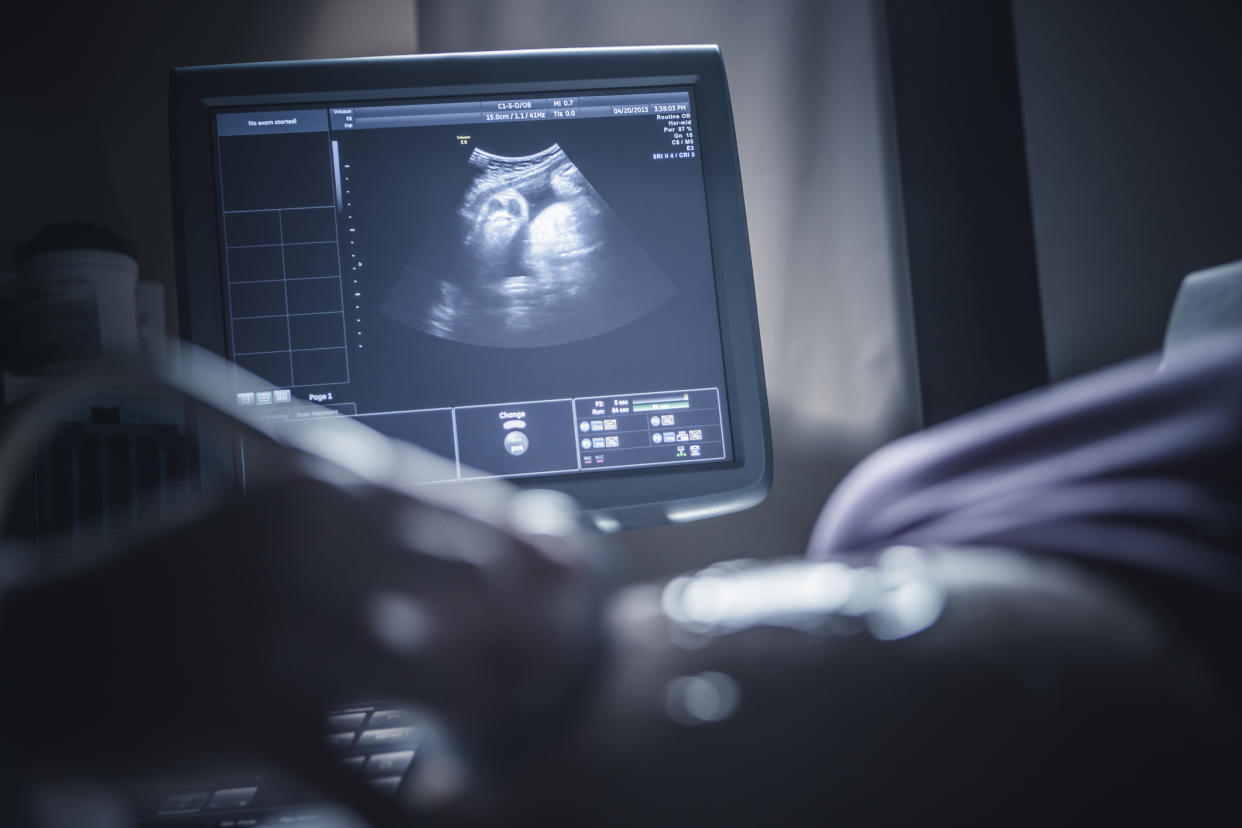Texas and Yelp are suing each other over crisis pregnancy centers

- Oops!Something went wrong.Please try again later.
Who knew the next big battle over free speech and abortion would feature a website best known for restaurant reviews?
Texas Attorney General Ken Paxton announced Thursday that he’s suing Yelp for appending a disclaimer to listings for crisis pregnancy centers (CPCs) whose mission is to steer pregnant women away from choosing abortion, Reuters reported. After the Supreme Court overturned abortion rights last year, the company began warning users that CPCs “typically provide limited medical services.” That’s misleading, Paxton said, and “dissuaded consumers from visiting these clinics in favor of clinics that perform abortion services."
But Yelp isn’t just playing defense. CNN reported the company is suing Texas for the right to keep the disclaimer. Paxton’s lawsuit “threatens to silence Yelp and infringe on the company’s First Amendment rights,” the company said in its filing. Yelp said it stood by the truthfulness of its original notice — and has also updated the warning it places on CPC listings with new language: “Crisis Pregnancy Centers do not offer abortions or referrals to abortion providers.”
The battle comes as anti-abortion lawmakers in red states increasingly steer tax dollars to crisis pregnancy centers, The Washington Post reported. Nationally, the centers — tax-supported and otherwise — now outnumber abortion clinics by a 3-to-1 margin. They often offer pregnancy tests and ultrasounds “typically coupled with anti-abortion messaging.” Critics say that messaging is often misleading. And blue state officials are looking to aggressively regulate the centers as a result.
Misinformation or a 'real choice'?
Texas’ state-funded centers have been at the center of the controversy. For example, NBC News reported last year that its producers visited Texas CPCs where they were told that “abortions caused mental illness and implied abortions could also cause cancer and infertility.” (The American College of Obstetricians and Gynecologists called those claims “misinformation.”) Abortion is largely banned in the state, of course, but a study found that one of every four Texas women who had received an out-of-state abortion first visited a CPC, which “delayed their progress toward care.”
Conservatives disagree with the centers’ critics. CPCs offer “a pro-life perspective, to be sure,” Alexandra DeSanctis wrote for National Review in 2021. But, she argued, in a “majority” of cases “women don’t actually want to choose abortion.” The centers provide a “real choice” to those women “by giving them the help they need to choose life.” For some mothers, it means choosing adoption. For others, it’s “the assurance that motherhood is a worthwhile choice.” The result? Women who visit a CPC “are about 20 percent less likely to choose abortion.”
Whatever your take on that debate, Yelp is suing Texas for the “right to publish actual accurate abortion info,” Thomas Claburn argued at The Register, a tech news site. One way we know it’s true: Paxton himself called Yelp’s updated disclaimer “accurate” in a February press release. The company, meanwhile, defends the need to append CPC listings with a warning: While some users want “pregnancy resources that crisis pregnancy centers provide,” a Yelp spokesperson said, others are looking to “find reliable information about abortion providers.”
A Supreme Court battle ahead
The legal battles over online political speech are piling up. And yes, Texas is in the mix once again. The New York Times reported the Supreme Court will — separately from the CPC lawsuits — hear a challenge to Texas and Florida laws that tell social media companies they can’t remove user posts for political reasons. Conservatives say the companies have unfairly yanked posts “expressing conservative views on issues like the coronavirus pandemic and claims of election fraud.” But the tech industry says the government can’t tell them “whether and how to disseminate speech.”
Crisis pregnancy centers, meanwhile, face legal challenges for what they say to pregnant women. The Associated Press in August reported a federal judge’s order to block a new Illinois law that penalizes CPCs for using “misinformation, deceptive practices, or misrepresentation” that would interfere with abortion or contraception access. Women should be able to “access safe medical care without deception or lies,” Gov. J.B. Pritzker, a Democrat, said after the court’s decision. Anti-abortion advocates in Illinois, though, say CPCs are protected by the First Amendment too.

